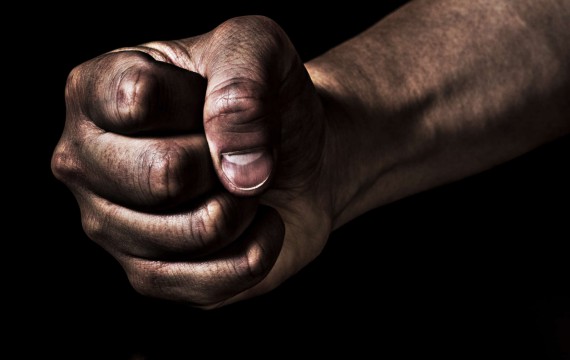Everyone feels the pain of abandonment at some point in their lives.
Whether it was as blatant as a parent abandoning you at a young age, or as subtle as an emotionally intense relationship ending abruptly, everyone feels the sting of abandonment at some point in their journey.
So what is abandonment?
Abandonment is the feeling of losing love or connection with someone you cared about.
Abandonment is a cumulative, deeply penetrating emotional wound that encompasses all of the losses you have experienced stemming back to your childhood.
For some people, who had particularly severe events of abandonment, this fear of loss affects them heavily on a daily basis. They enter into safe, arms-distance relationships where no one truly knows them. They take a job where they excel so that they constantly feel needed and validated. They can even go as far as avoiding people who have the gift of intuition because they don’t want anyone seeing through their mask of being an emotionally stable adult.
To drive the point home in a more tangible way, I will share a personal story of emotional abandonment.
When Love Lost Hurts More Than You Can Bare
Six years ago I entered into a relationship with someone who I thought at the time was my soulmate.
I would do absolutely anything for her. I would regularly cancel plans at the last minute with close friends in order to hang out with her. I would engage in behaviour that went against my values in order to appease her. And I generally just wouldn’t say no to her even when I wanted to (I lacked personal boundaries).
I made someone a priority who largely considered me an option. I made my partner and the relationship drastically more important in my mind than I cared for myself as an individual.
When the inevitable day came that she ended the relationship, I was completely distraught. It blindsided me because I had chosen to be ignorant of how unhealthy the relationship had become. I had invested so much of myself and my identity into the relationship that I felt as if someone had ripped out my heart.
I made a promise to myself that day that I would never let anyone have that level of control over me ever again (this was me going into my shock/withdrawal stage that I will touch on shortly).
What Happens To You Emotionally When You Feel Abandoned?
When abandonment occurs (whether from a parent leaving you, an intimate relationship ending, or any other number of traumatic events that could take place) the abandoned person withdraws into themselves. Just like a turtle hiding in it’s protective shell, the abandoned person needs to protect themselves from what feels like a physical attack on their well being.
The stages of loss of abandonment are shock, denial, anger, bargaining, depression, testing, and acceptance. These stages do not necessarily occur in a linear or progressive fashion. You can experience some of these stages in a cynical manner and others not at all. It is completely a personal experience and none of the stages are healthier or more or less correct than the others. Emotions simply are what they are.
Shock: Not being able to comprehend that the relationship has been severed.
Denial: Not accepting that the relationship is being severed.
Anger: Trying to salvage the relationship by blaming the abandoner for their wrongdoings.
Bargaining: Promising to make changes in order to keep the abandoner from leaving.
Depression: Withdrawing into oneself and away from the world while simultaneously blaming oneself for the end of the relationship.
Testing: Becoming curious about proactive solutions towards opening up to loving relationships again and undoing the pain of one’s damaged self-esteem via the depression phase.
Acceptance: Experiencing a renewed sense of hope when realizing it is one’s choice whether or not to open up to love again.
It is possible (without outside help) to become stuck in one of these stages. At this point in time, journaling, reading, or talking it over with a coach or therapist are hugely beneficial as it gives you some much needed clarity and perspective in to your situation.
What Makes The Pain Of Abandonment Different From Any Other Type Of Grief?
Abandonment differs from a general grieving in that it commonly takes a massive hit on your self-esteem.
You take the abandonment as a reflection on your value as a person and you internalize their decision as your fault. When someone unexpectedly abandons you, a part of your mind quickly gravitates towards “I must have made this happen. How can I blame myself for them leaving me? In what ways am I unlovable?”
Whether this internalization shows itself immediately during the bargaining phase (“I know I messed up! I can do better!”), or later on in the depression phase (“This was all my fault. No one will ever love me like they loved me ever again.”) it will rear it’s ugly head at some point in your process.
What Does Unresolved Abandonment Lead To?
If left unchecked, the emotional residue from abandonment can wreak havoc on your personal life and overall sense of self.
This internalization of the abandonment often leads to more toxic emotions like shame, and deeply rooted insecurities, and toxic behaviours like addictions, compulsions, and self-medicating with drugs or alcohol. This is by no means a compressive list and addictive or self-medicating behaviours can take many forms. I have had clients who self-medicated with serial monogamy, shopping, and over eating.
Abandonment often leads to resistance towards letting yourself love anyone. You don’t feel like you’re worthy of letting someone close and so you keep everyone away with a hardened exterior.
You may also self-sabotage your relationships because you fear letting someone get close to you, and so you ensure that they never can by cheating on them, pushing them away, or leaving them abruptly as the swift and heavy door slams shut between the two of you and you hold yourself back from feeling anything towards them.
We try to medicate with food, drugs, alcohol, consuming, or other relationships, but it all leads back to the basic truth that you’re trying to fill the gaping void that you feel within yourself. Sadness, insecurity, and self-doubt are running your subconscious mind until you consciously take control of your emotional process.
How Do You Get Past Your Abandonment Issues?
Abandonment is such an individual process that it’s nearly impossible to make a one-size-fits-all solution for the emotional processing that needs to occur in order for you to feel whole again.
Addressing and accepting the emotions that already live within you (whether they are sadness, rage, confusion, etc.), finding empathy for your abandoner, and consciously boosting your self-esteem and propensity for self-compassion are all essential steps in your process to recovery and allowing yourself back into a thriving love relationship.
You have every right to be happy again. Someone will love you fully once more when you decide to let them in. It won’t necessarily be a simple and frictionless process, but you will get there once more if it’s something that you care about in your life.
And, as always, I’m here to help if you need someone to talk to.
Dedicated to your success,
Jordan







